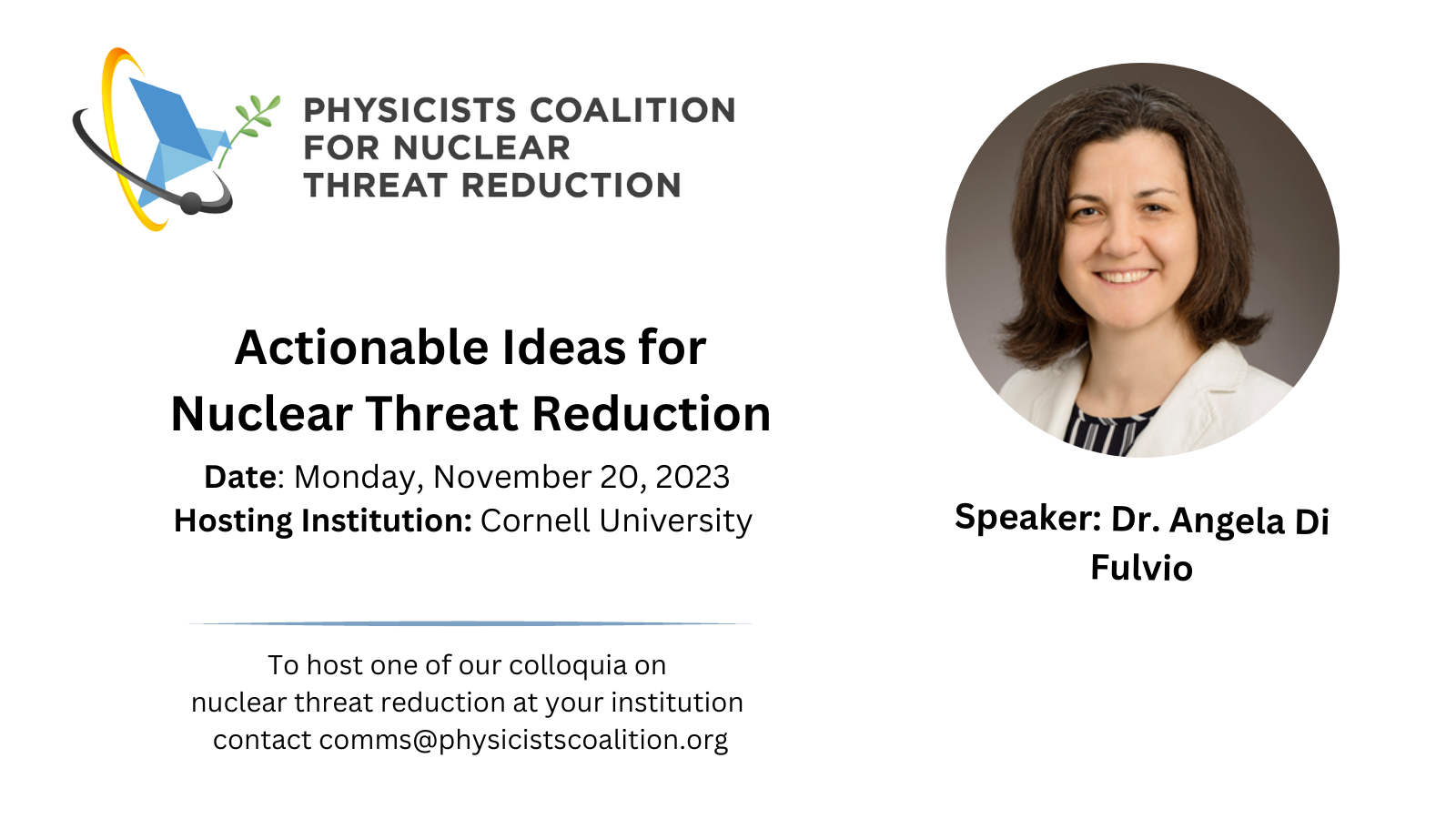
Cornell University – Actionable Ideas for Nuclear Threat Reduction
This event has been cancelled.

This event has been cancelled.
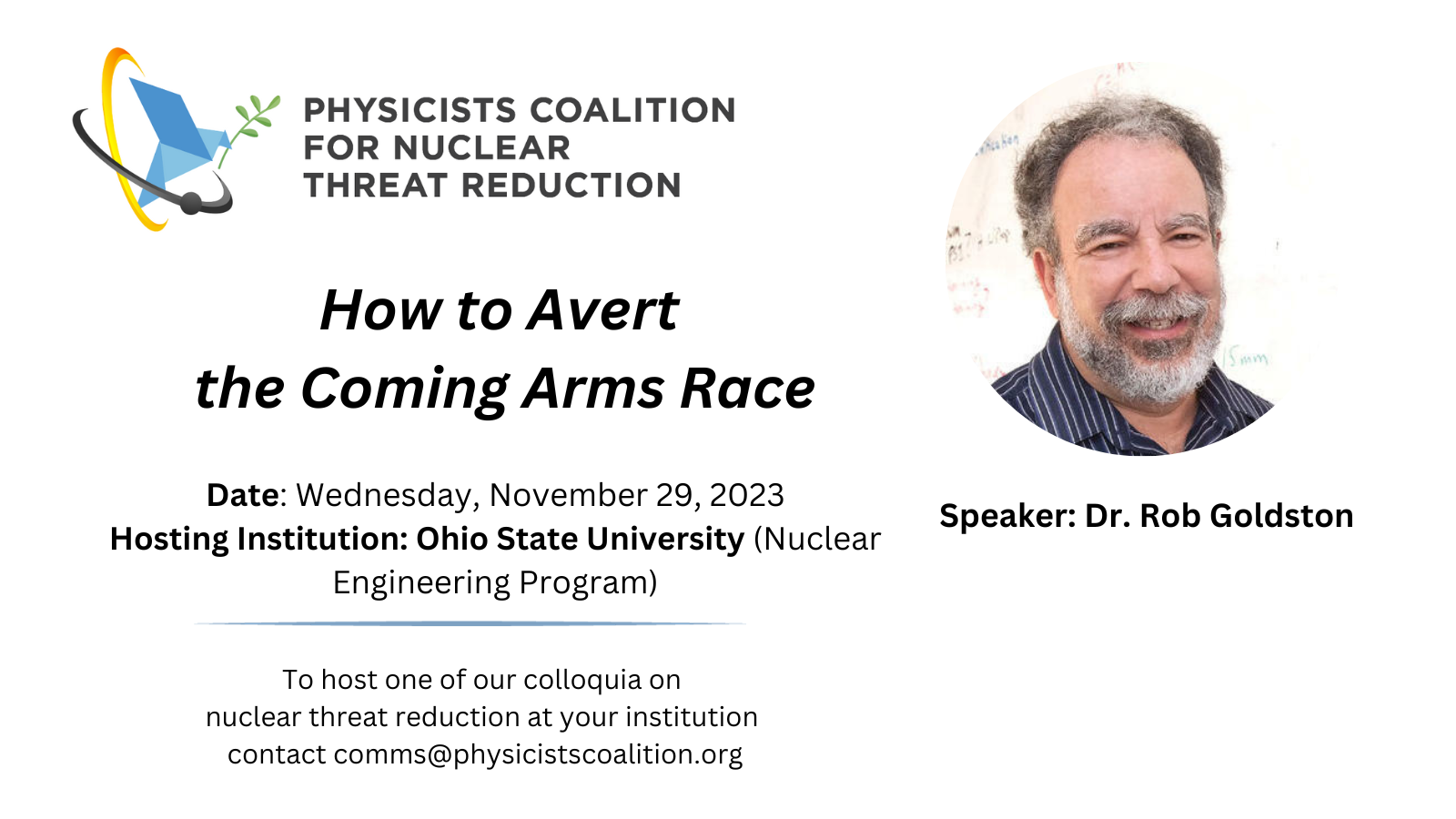
Abstract The United States, Russia, and China are engaged in the early phases of a new nuclear arms race and Russia and NATO are engaged in a nuclear-tinged war in Ukraine. With the recent shredding of arms-control agreements, the arms races may proceed unfettered and could lead to unprecedented dangers to humanity. On the other […]
Webinar Abstract: The U.S. Air Force is moving forward with plans to refurbish all its 450 nuclear missile silos and replace its current fleet of Minuteman III land-based intercontinental ballistic missiles with new Sentinel missiles. A new study based on state-of-the-art nuclear war modeling suggests the scale of the human and environmental impact […]
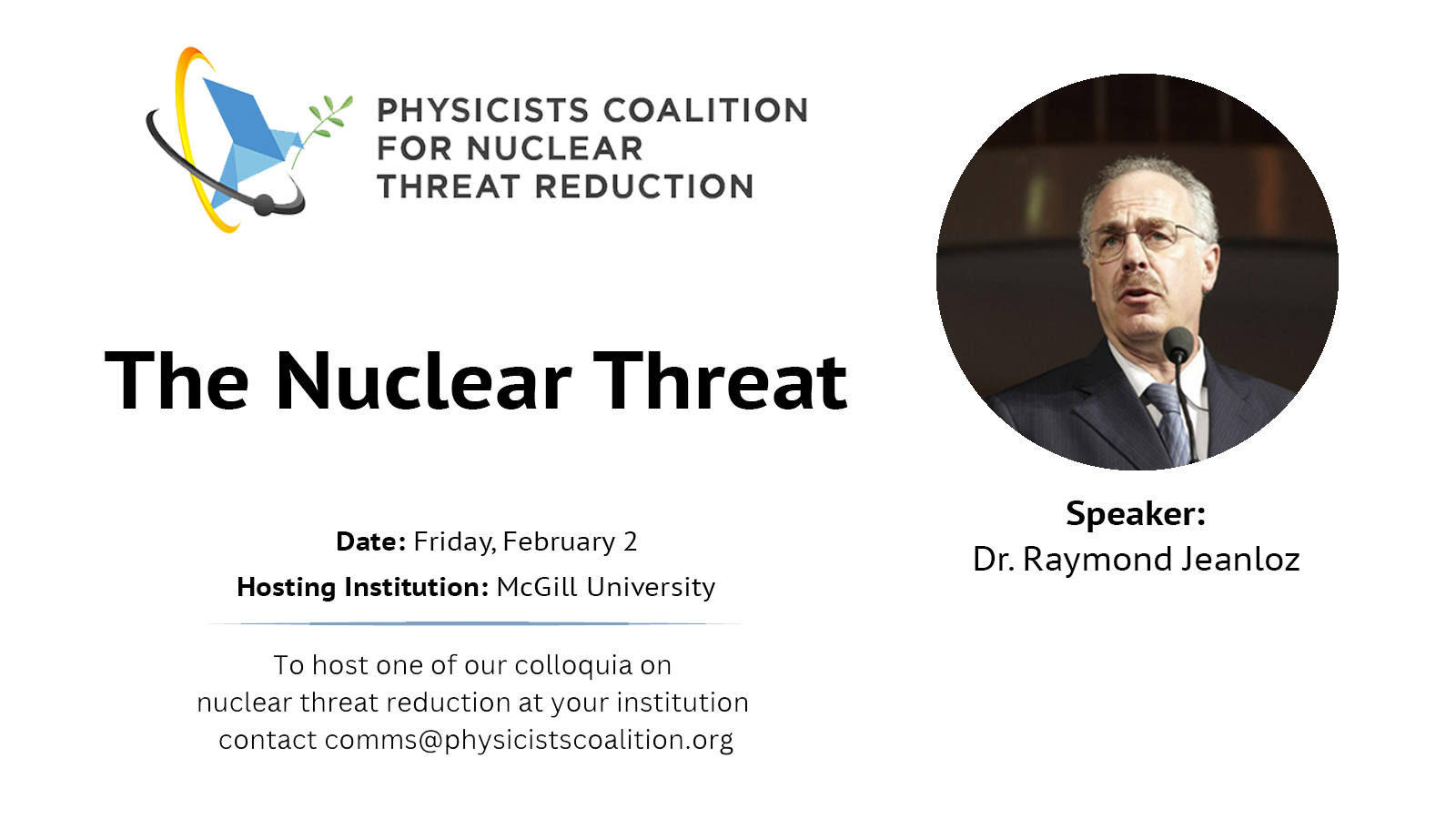
Abstract The deployment of thousands of nuclear weapons around the world creates a potential threat to civilization as we know it. This is a matter for physicists to address, not only because of the technical issues involved but also because of our community’s approaches to problem solving as well as our international reach, all within […]
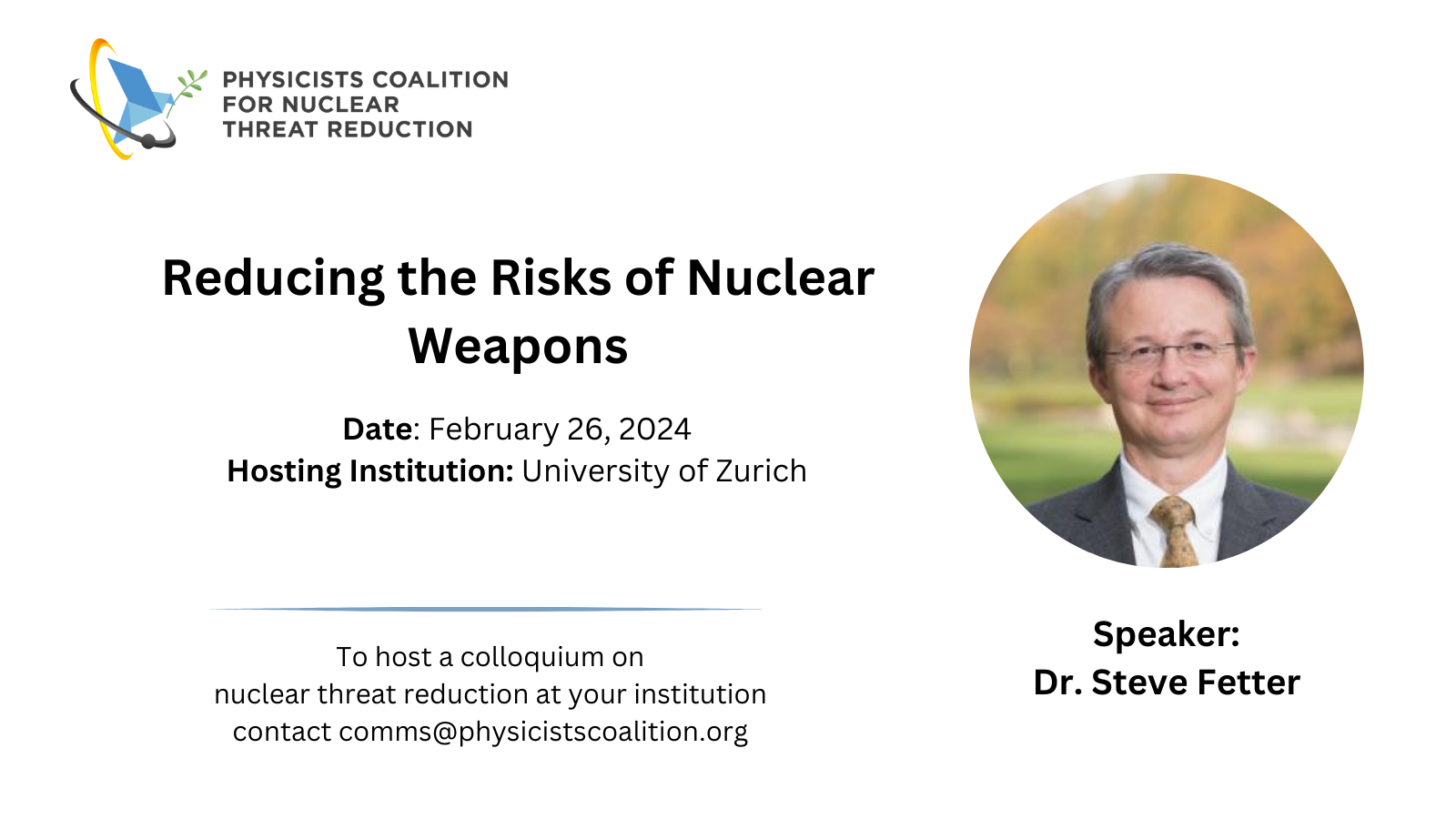
Abstract After a long period of post-Cold War stability, the risks posed by nuclear weapons are increasing sharply, marked by the invasion of Ukraine, a nuclear generation of Russian nuclear weapons, expansion of China’s nuclear arsenal and tensions over Taiwan, missile testing by North Korea and uranium enrichment by Iran, and a major nuclear modernization […]
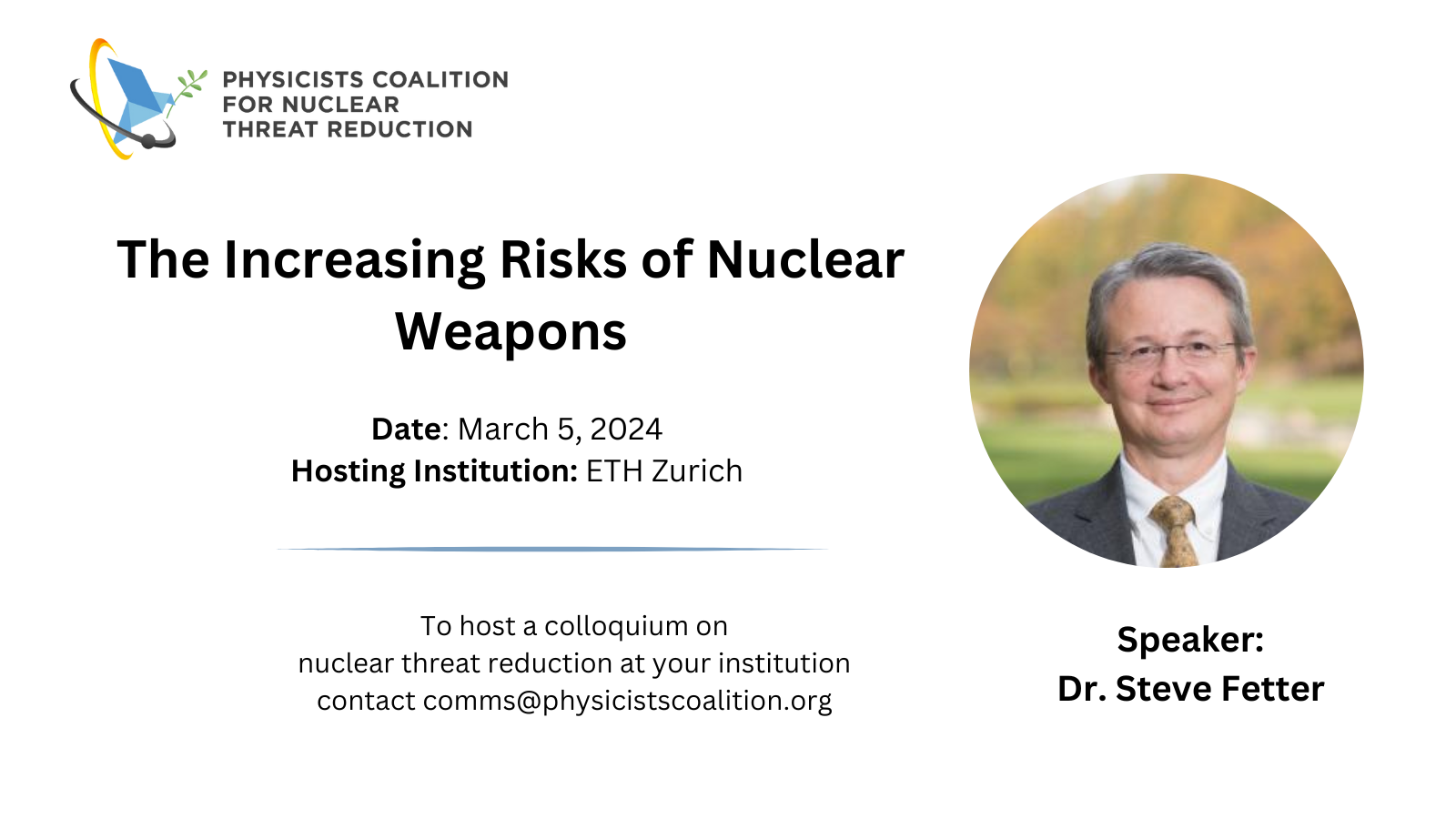
Abstract After a long period of post-Cold War stability, the risks posed by nuclear weapons are increasing sharply, marked by the invasion of Ukraine and a new generation of nuclear weapons being developed and deployed by Russia, China, and the United States. Physicists played an important role in nuclear debates during the Cold War; they […]
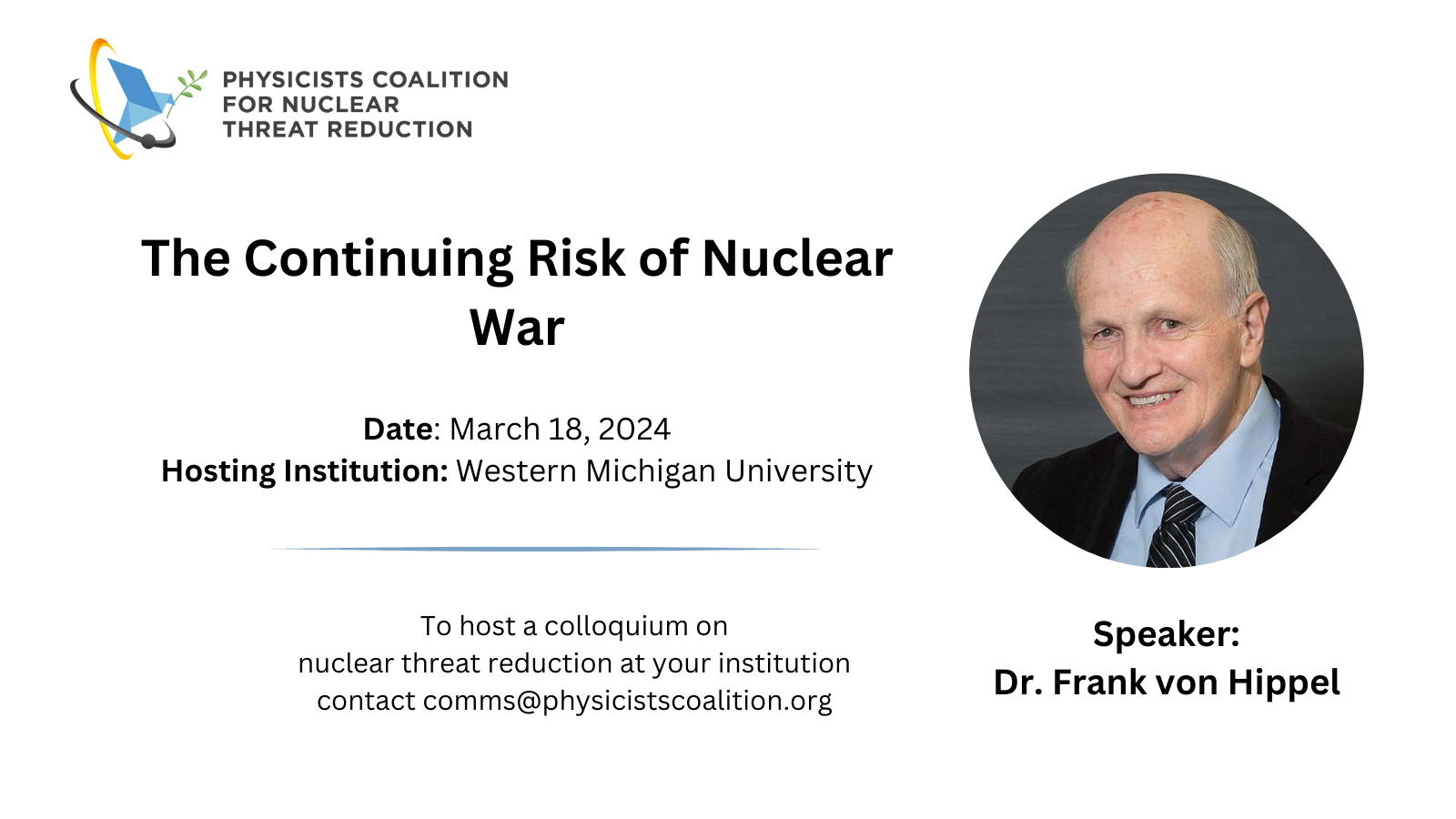
Abstract With the end of the Cold War and the disintegration of the Soviet Union, the public, including most physicists, and Congress, assumed, the danger of a nuclear war had ended as well.Unfortunately, that has not been the case. Indeed, the danger of accidental nuclear war may be increasing. US and Russian strategic missiles remain […]
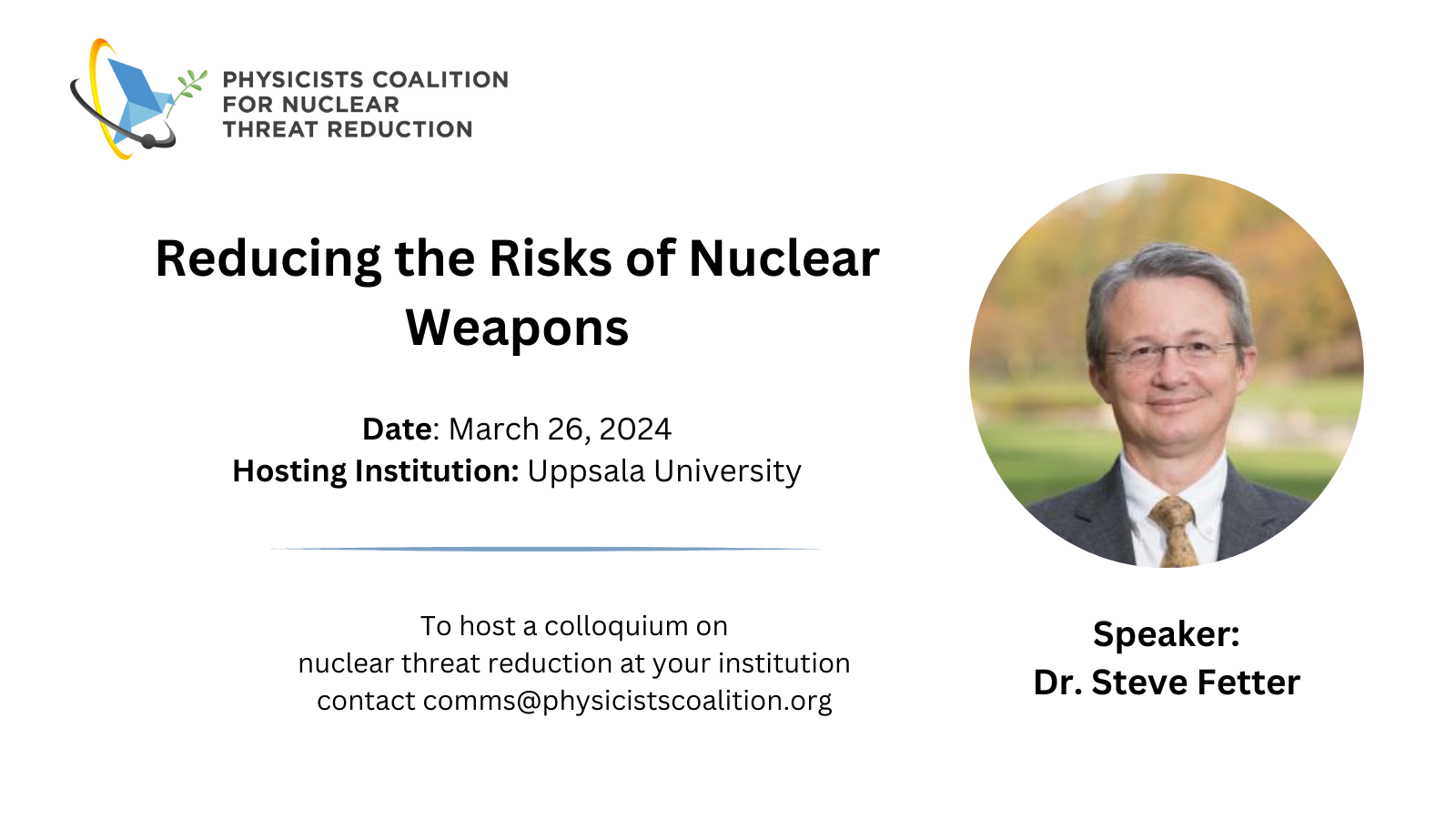
Abstract After a long period of post-Cold War stability, the risks posed by nuclear weapons are increasing sharply. This is marked by the invasion of Ukraine, a nuclear generation of Russian nuclear weapons, expansion of China’s nuclear arsenal and tensions over Taiwan, missile testing by North Korea and uranium enrichment by Iran, and a major […]
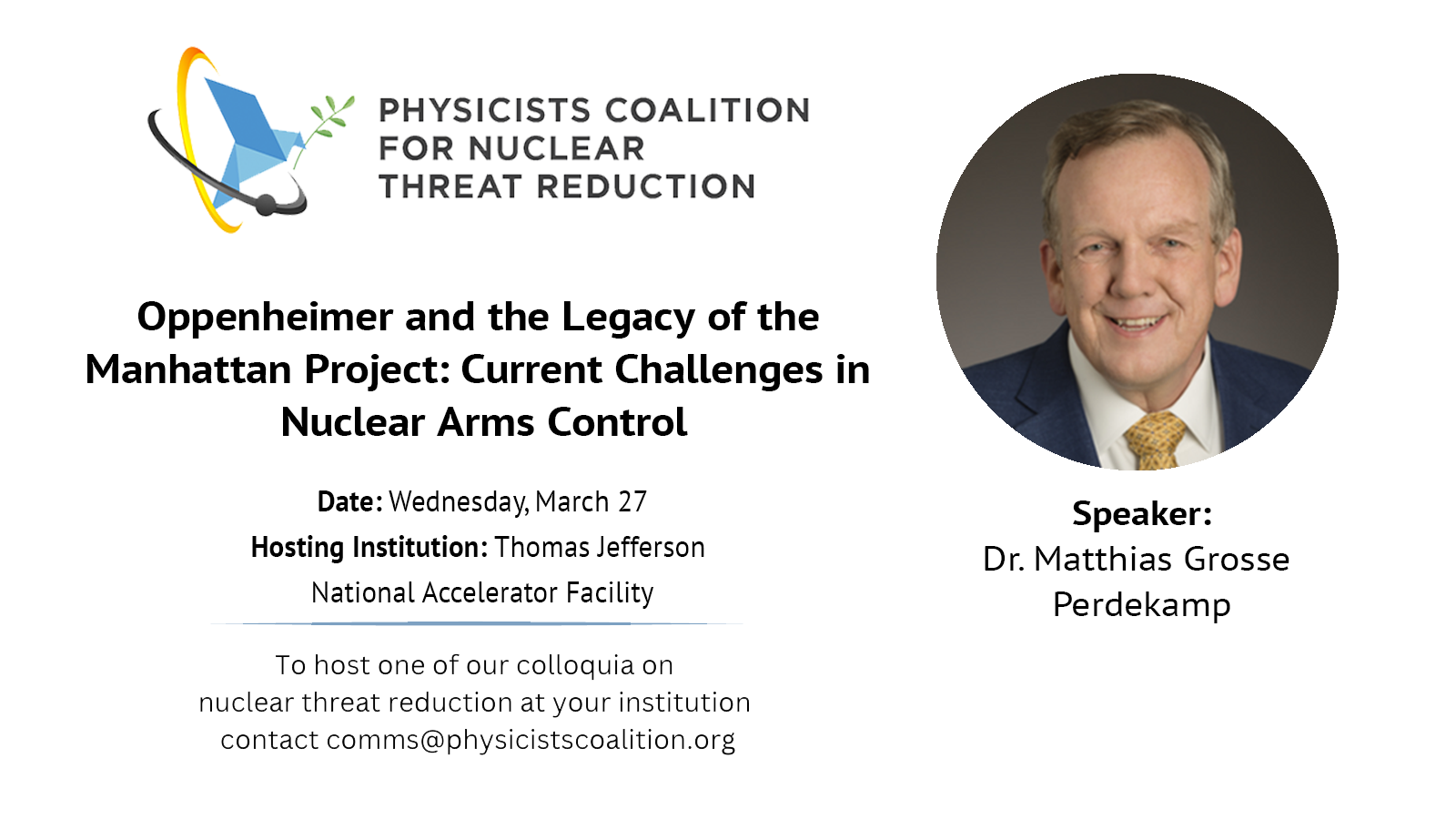
Abstract 80 years ago, Robert Oppenheimer led an industrial scale effort with more than 130,000 employees to create the nuclear fission weapons used to end World War II. With the United States and its allies facing totalitarian aggressors in the European and Pacific theaters, many elite scientists, engineers, and technicians supported the Manhattan Project through […]
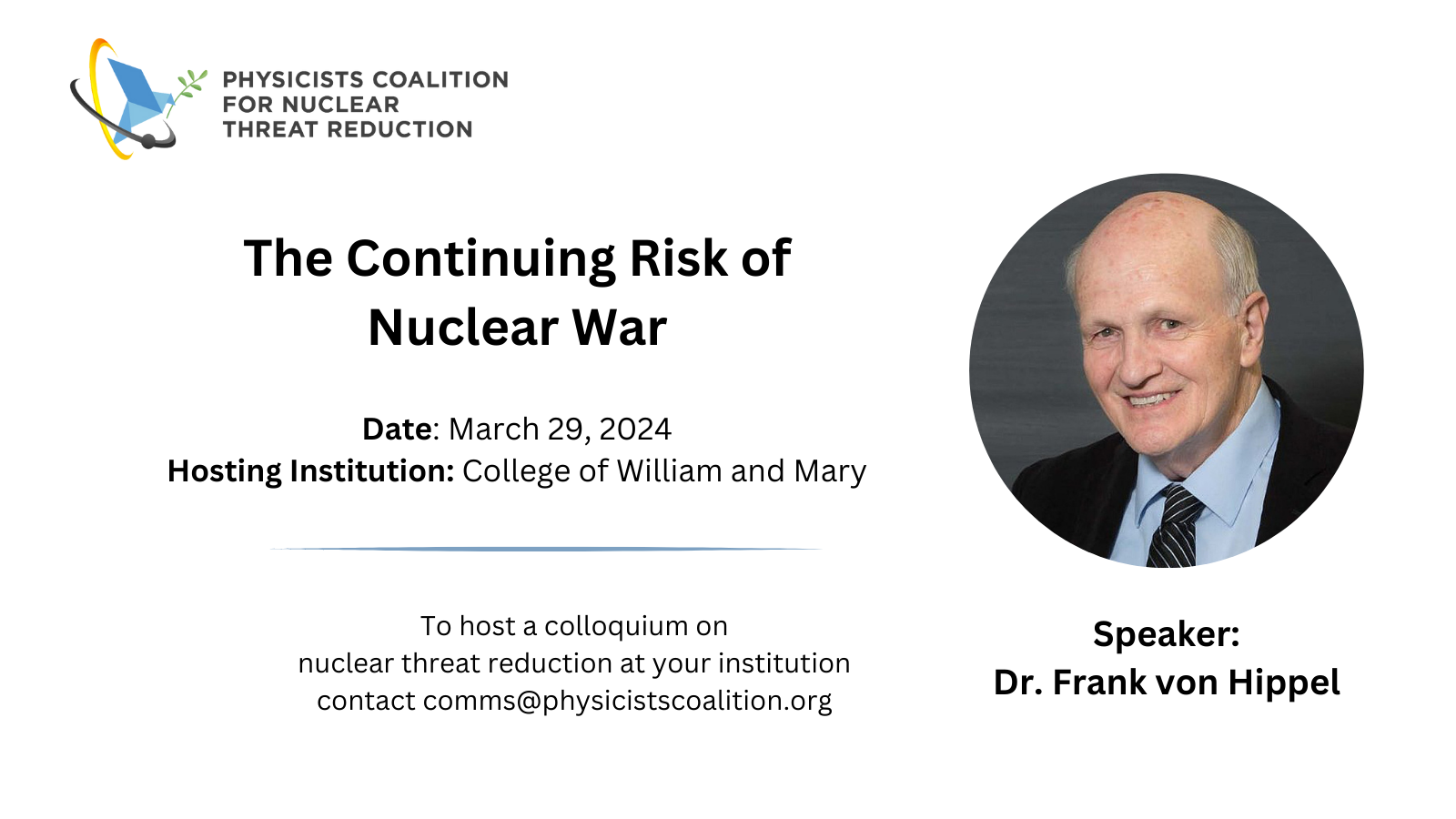
Abstract With the end of the Cold War and the disintegration of the Soviet Union, the public, including most physicists, and Congress, assumed, the danger of a nuclear war had ended as well.Unfortunately, that has not been the case. Indeed, the danger of accidental nuclear war may be increasing. US and Russian strategic missiles remain […]
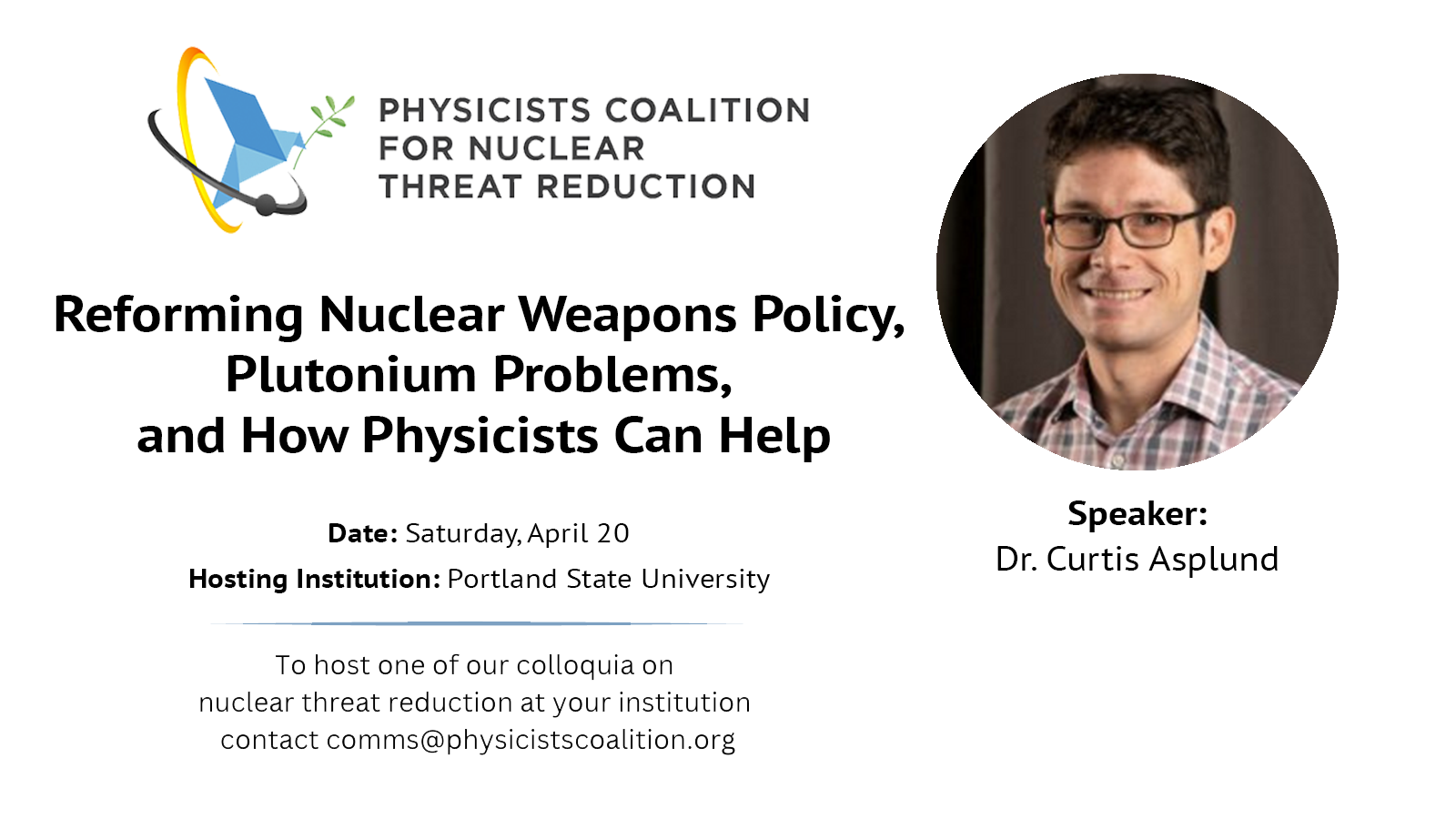
Abstract Physicists invented nuclear weapons over seventy-five years ago. Today, they still threaten humanity with catastrophe and, recently, this risk has been increasing. The US has over 1,500 deployed nuclear weapons plus thousands more inactive or retired. Current policy calls for maintaining and “modernizing” about 4,000 nuclear warheads and their delivery vehicles, at the cost […]
This webinar delves into the multifaceted dimensions of the contemporary nuclear arms race, offering in-depth analyses from three of the world's nuclear powers. Experts will explore the motivations, defense policies, and diplomatic postures of the United States, Russia, and China, providing the audience with a comprehensive understanding of each nation's policies and perspective. The […]